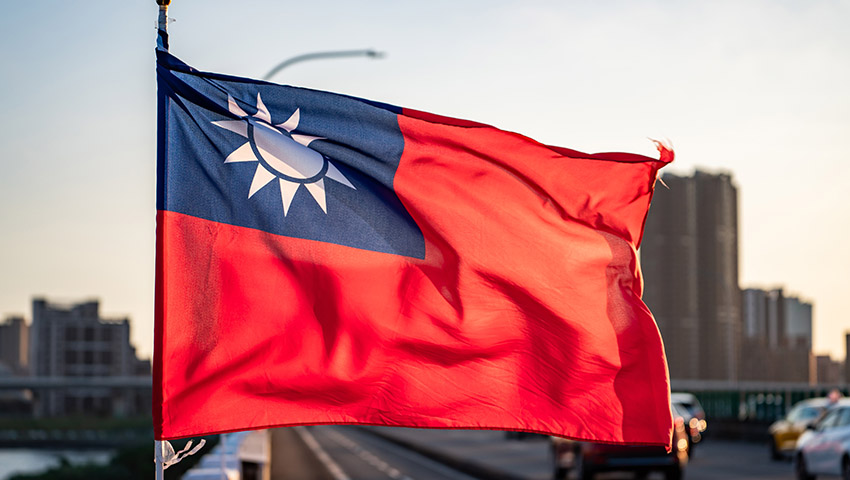What political outcomes do the people of Taiwan desire and how can they be achieved? A Lowy Institute analyst explores.
To continue reading the rest of this article, please log in.
Create free account to get unlimited news articles and more!
Much has been said about the recent escalation in tensions between Beijing and Taipei, with some observers fearing an imminent conflict.
A spike in PLA intrusions over Taiwan’s south-west air defence identification zone has only intensified these concerns, with well over a dozen incidents reported in October.
In response, the Taiwanese military has deployed combat air patrol platforms, issued radio warnings, and prepared air defence missile systems.
Within the US, commentators have questioned the Biden administration’s commitment to Taiwan, with some calling for an ironclad assurance of military support in the event of a PLA invasion.
But do the Taiwanese people want these assurances?
According to Natasha Kassam, director of public opinion and the foreign policy program at the Lowy Institute, the will of the Taiwanese public has often been overlooked in the discussion.
Kassam notes that decades of polling suggest the clear majority of Taiwanese do not want to unify with China, wanting instead to “continue living their lives as they see fit, under a democratically elected government”.
But the people aren’t looking to aggressively assert their independence either, with a recent poll revealing 87 per cent want to “maintain some form of the status quo”.
“The status quo means maintaining de facto independence but avoiding retaliation from China. And the percentage of Taiwan’s people who want to maintain the status quo indefinitely is growing,” Kassam writes.
“It is the best-case scenario in a sea of unenviable options.”
The Lowy analyst notes that in the absence of a risk of invasion from China, most Taiwanese would choose independence, but given President Xi Jinping’s staunch opposition, the status quo is “pragmatic and preferable”.
“Taipei’s responses to Beijing’s threats have been resolute, but the island nation has warned against unilateral changes to the status quo,” she continues.
“Taiwan’s President Tsai Ing-wen called for ‘maintaining’ it in her recent National Day address, saying ‘we will do our utmost to prevent the status quo from being unilaterally altered’.”
Kassam goes on to explain what the ‘status quo’ could mean for Taiwan.
“Taiwan can exist as an independent state, with its own elections, judiciary, currency and military. China doesn’t relinquish its claim to Taiwan, and other countries avoid recognising Taiwan as a sovereign state, instead pursuing informal relations with it,” she writes.
“The United States sells Taiwan arms for self-defence and does not clarify whether the United States will defend Taiwan if China invades. This serves to deter Beijing while not provoking it.
“That works for Taiwan.”
President Tsai and other senior figures in Taiwan, Kassam notes, are calling for international support while at the same time, “urging caution against escalation” and warning against “warmongering and sabre-rattling”.
As such, a shift in US policy from “strategic ambiguity” to “strategic clarity” could give Beijing an excuse to invade under the pretence that it’s claim over Taiwan was undermined.
“To be clear, it is China’s aggression that is threatening lives in Taiwan. Increased aerial incursions are a challenge to the status quo,” Kassam adds.
“In response, Taiwan’s leaders have stressed domestic resilience while asking partners to advocate on its behalf in international institutions. Rather than calling for an explicit mutual defence guarantee, Taipei is seeking further security co-operation, economic links and opportunities to join regional trade initiatives.
“These moves are not an attempt to change the status quo but rather a response to China’s efforts to tip the balance. Taiwan’s requests are measured and moderate, designed to create more space for it to exist without crossing Beijing’s red lines.”
According to the Lowy Institute analyst, the US must communicate that China’s threats to Taiwan would not be tolerated without cost.
Kassam writes that the US should provide moral support to the Taiwanese, with three-quarters of the population wanting the US to support its participation in international affairs.
But any US action, she argues, must be guided by the will of the Taiwanese people.
“Signals from Washington to Tokyo, Canberra and Seoul show Beijing that Taipei is not isolated. But the risk of miscalculation is high. In this fraught moment, the United States’ response must be to follow Taiwan’s lead,” Kassam writes.
“Otherwise, the risk is that various nations will act with urgency to suit their own domestic settings — inching closer to a catastrophic war, without reference to Taiwan’s people, or viewing Taiwan as a problem to be solved, a flashpoint or the most dangerous place on earth, not a peaceful democracy of 24 million people.”
However, “all bets are off” if Beijing takes hostile action against Taiwan.
“… Ms Tsai’s moderate path would no longer be tenable, and Taipei would need to look to Washington for unambiguous support,” Kassam notes.
“But this is unlikely to happen in the short term. US and Taiwan defence officials agree that China could be several years away from having the capability to invade Taiwan.”
She concludes: “Helping Taiwan requires understanding the history and political aspirations of the people of Taiwan. Yes, measured responses are needed to Beijing’s provocative actions. But those wanting to help should take their cues from the people they claim to defend.”
Get involved with the discussion and let us know your thoughts on Australia’s future role and position in the Indo-Pacific region and what you would like to see from Australia's political leaders in terms of partisan and bipartisan agenda setting in the comments section below, or get in touch with

 Login
Login







